Today, Europe is actively tackling the global challenge of climate change and building a more sustainable future for the global economy through the key measure of the Border Carbon Adjustment Mechanism (BCAM).
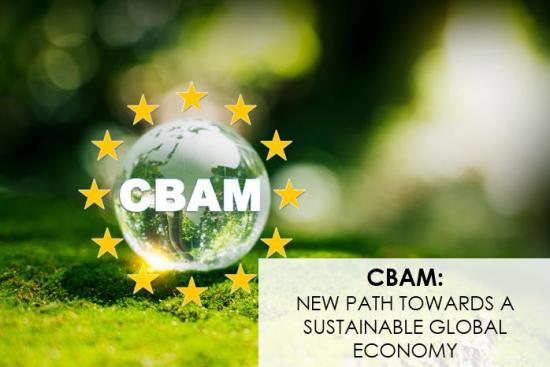
Background of CBAM
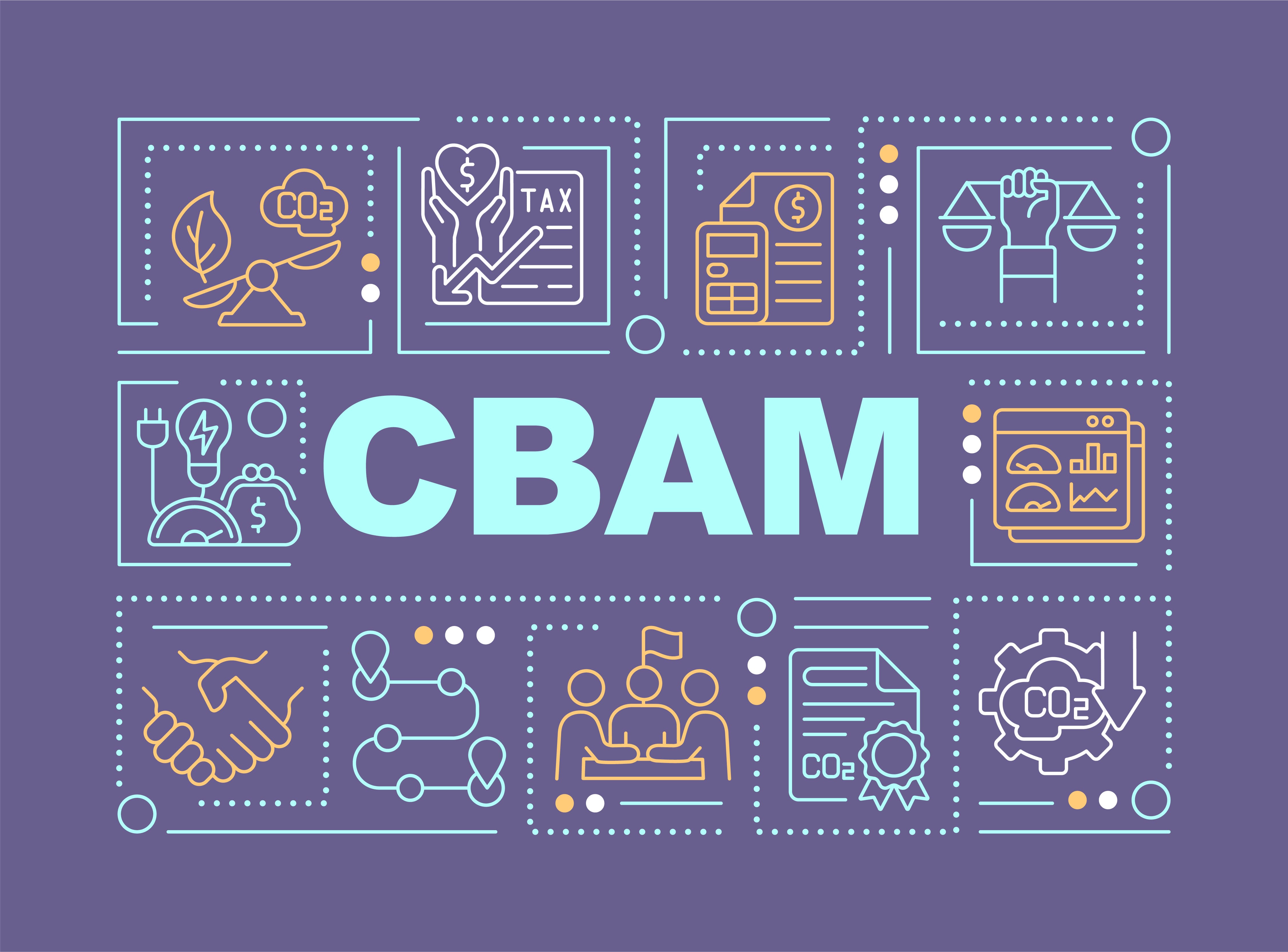
Since October 1, 2023, the European Union (EU) has been implementing a new regulation, the Carbon Border Adjustment Mechanism (CBAM), applicable to designated imported goods from outside the EU (cement, electricity, fertilizers, hydrogen, steel and aluminum). These goods, referred to as CBAM products, will be progressively subject to adjustments. From October 1, 2023, companies will have to declare these goods, and from January 1, 2026, they will be subject to a registration and payment obligation.
What is CBAM?
CBAM is a price adjustment applied to imports into the EU of goods designated according to their CO2 emissions in the production process outside the EU. The aim of CBAM is to reduce CO2 emissions while encouraging emission reductions by non-EU operators, thereby contributing to the reduction of global carbon emissions.
Why CBAM?
CBAM is part of the EU's « Fit for 55 », which aims to reduce the EU's greenhouse gas emissions by at least 55% by 2030.
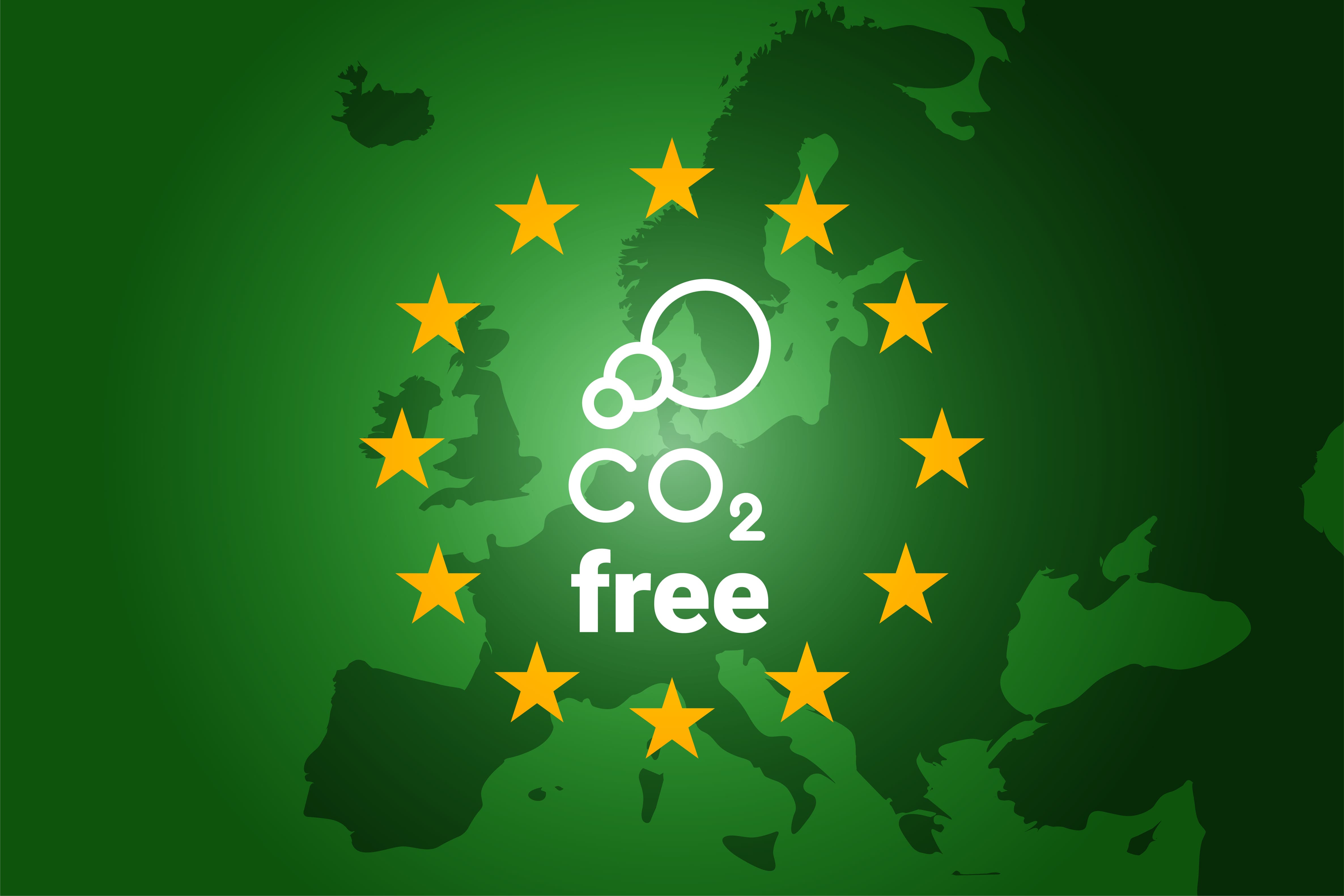
Currently, the EU operates on a system where EU producers must purchase emission allowances for the CO2 emissions of their products (EU Emissions Trading Scheme, EU ETS). The CBAM price adjustment ensures that these producers are no longer disadvantaged when importing from third countries with less stringent climate standards.
Who does CBAM apply to?
CBAM applies to importers of CBAM products. These are goods in the following categories: Liste des produits CBAM
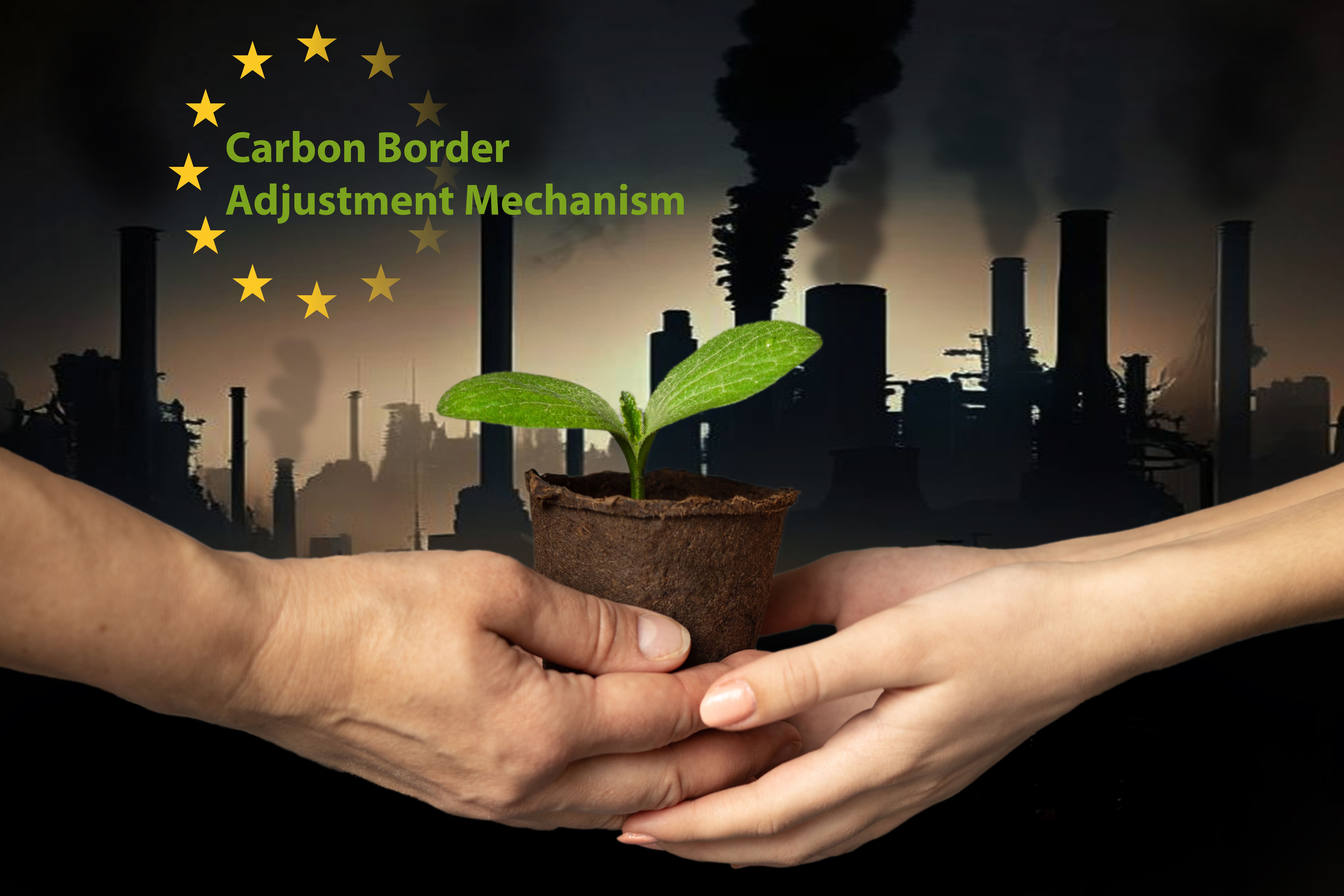
CBAM covers the following sectors:
- Cement
- Aluminum
- Fertilizers
- Electricity
- Iron & Steel
Latest news
On 14/12, the notice to importers concerning the MACF was published in the electronic Journal Officiel. According to the latest announcement, from October 1, 2023, new import obligations linked to the Border Carbon Adjustment Mechanism (BCAM) are in force. Importers must submit quarterly reports covering quantities imported, emissions associated with the import, and carbon prices paid. These reports must be filed on the European Union's "Registre MACF" to comply with the new import obligations.
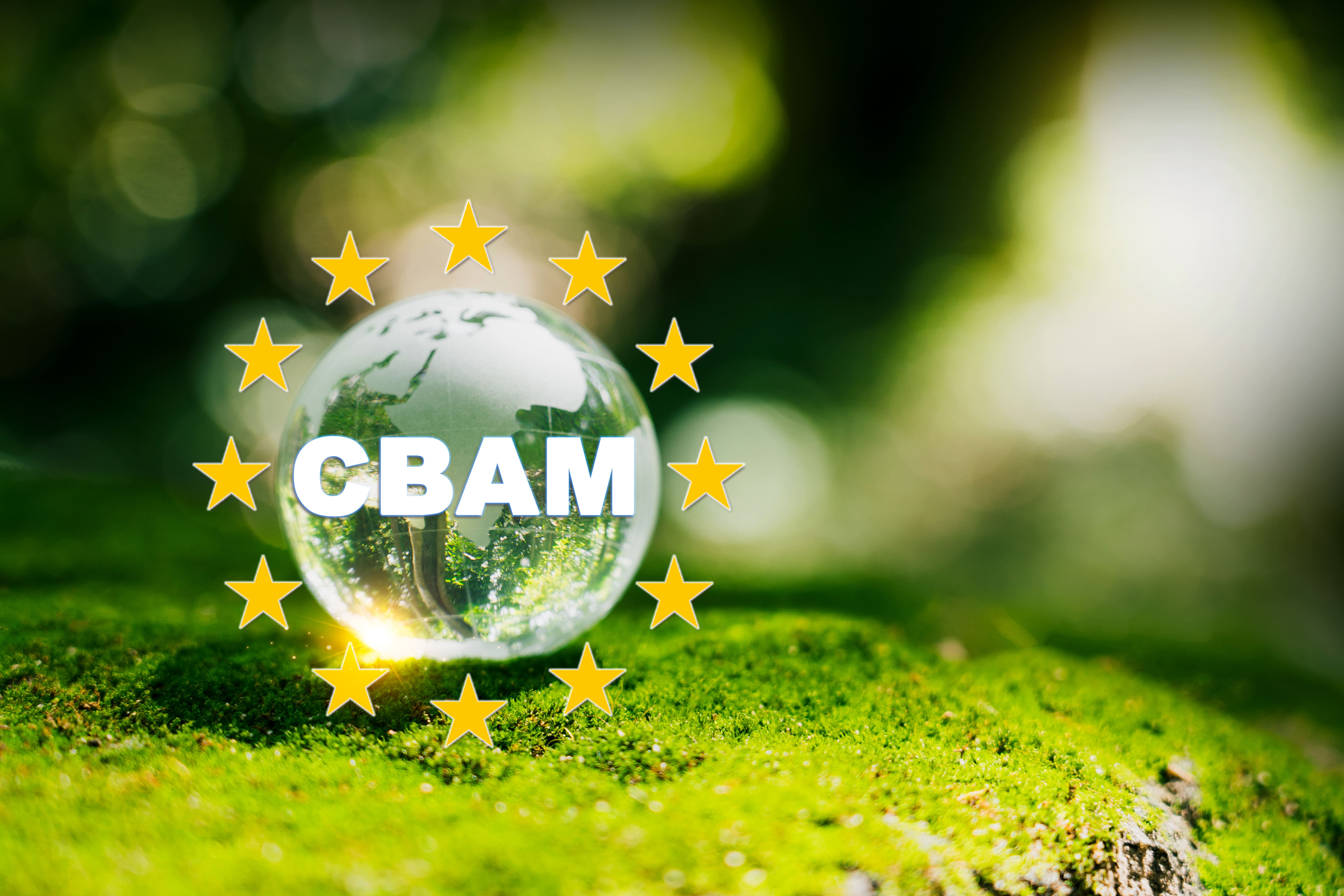
In addition, the announcement specifies the terms of access to the MACF Registry, where operators already holding specific identifiers benefit from automatic access, while those not yet in possession of such identifiers must contact their local authority after a specific date to obtain access.
It is important to note that from January 1, 2026, only operators with "MACF authorized declarant" status will be able to import the goods concerned. This status can be applied for from January 2025 and, once obtained, will be valid in all EU member states. Authorized MACF declarants will be required to purchase "MACF certificates" and meet annual declaration obligations, verified by an accredited validator, to be submitted to the MACF Register by May 31 of each year. The competent authority in France for this regulation is the Direction Générale de l'Energie et du Climat (DGEC).
Obligations for importers
From October 1, 2023, new import obligations will be introduced. Importers must report quarterly to the MACF register data relating to the total quantity of each type of commodity imported, the associated intrinsic direct and indirect emissions, and the carbon price paid in the country of origin.
SEKO-BANSARD's role
As a leader in the international freight and logistics sector, SEKO-BANSARD plays a crucial role in the implementation of CBAM. We are committed to helping our customers meet the challenges of CBAM. SEKO-BANSARD will provide comprehensive support, including assistance with CBAM product declarations, detailed advice and the provision of related documentation, ensuring smooth operations in line with regulatory requirements.
Impact of CBAM and adaptation measures
The implementation of CBAM will have a significant impact on companies and customers, particularly in terms of reporting. During the transition period, importers will only need to report the greenhouse gas emissions embodied in their imports, without making any financial payments or adjustments.
Conclusion
The implementation of CBAM marks an important step for Europe in tackling the global challenges of climate change. SEKO-BANSARD will continue to fully support its customers, providing professional logistics services, and ensuring smooth adaptation to the new CBAM policies. Through collaboration, we will move forward together towards a more sustainable future.
With the implementation of CBAM, the EU is taking concrete steps to stimulate global industry in a cleaner, more sustainable direction. SEKO-BANSARD will continue to follow the development of CBAM closely, providing professional support to help customers adapt to this new environment. We look forward to working with you to tackle climate challenges and create a better future.
REF:
- Belastingdienst. Carbon Border Adjustment Mechanism (CBAM). Retrieved From: https://www.belastingdienst.nl/wps/wcm/connect/en/customs/content/carbon-border-adjustment-mechanism-cbam
- European Council. Fit for 55: The EU Plan for a Green Transition. Retrieved from: https://www.consilium.europa.eu/en/policies/green-deal/fit-for-55-the-eu-plan-for-a-green-transition/
-
European Commission. Carbon Border Adjustment Mechanism. Retrieved from: https://taxation-customs.ec.europa.eu/carbon-border-adjustment-mechanism_en
-
Légifrance. Avis aux importateurs concernant le mécanisme d'ajustement carbone aux frontières (MACF). Retrieved from: https://www.legifrance.gouv.fr/
-
Direction Générale des Douanes et Droits Indirects. Démarche: Importer certains produits industriels à risque de fuite de carbone. Retrieved from: Journal officiel de la République française - N° 289 du 14 décembre 2023 (legifrance.gouv.fr)
- Contactez-nous: sales@bansard.com



